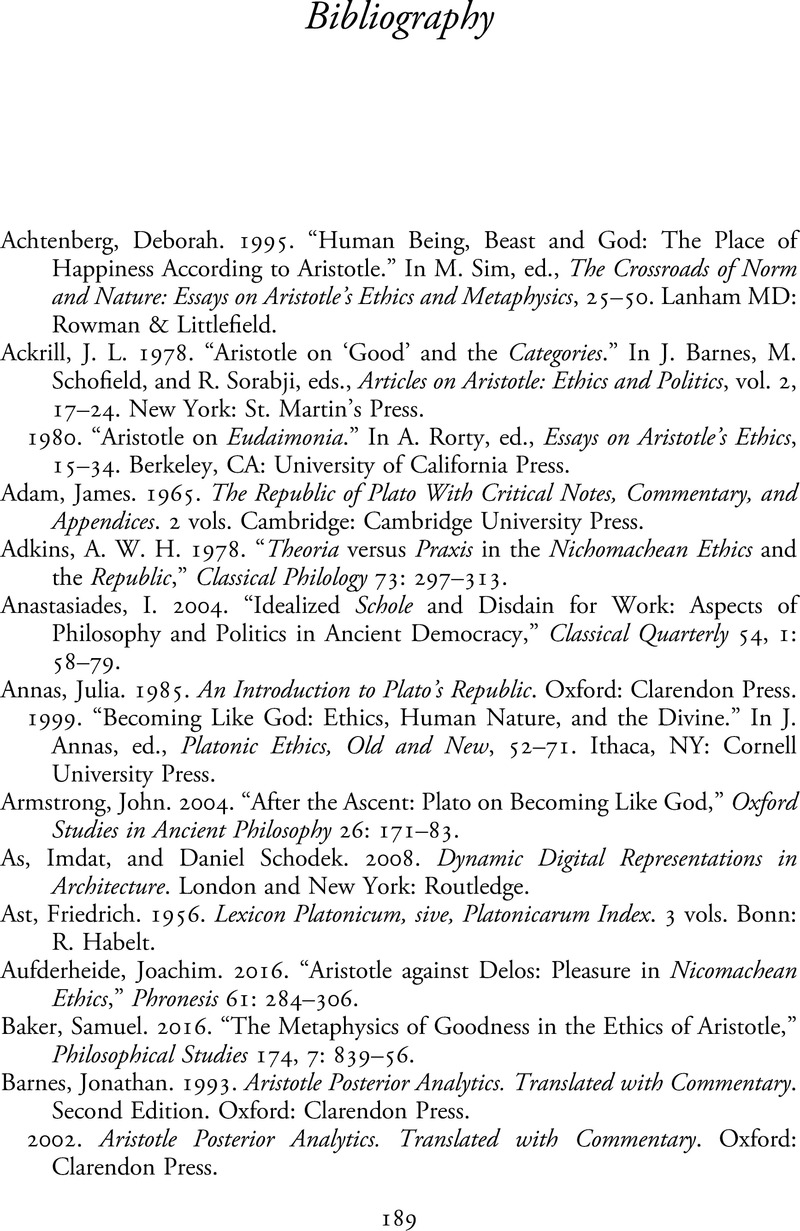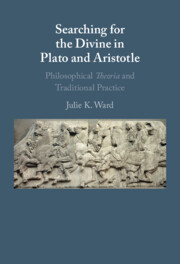Book contents
- Searching for the Divine in Plato and Aristotle
- Searching for the Divine in Plato and Aristotle
- Copyright page
- Contents
- Acknowledgments
- Abbreviations
- Introduction
- Chapter 1 Traditional Theoria
- Chapter 2 Literary and Philosophical Texts on Theoria
- Chapter 3 Plato’s Contribution to Theoria
- Chapter 4 Aristotle’s Refinement of Theoria
- Chapter 5 Theoria and Its Objects
- Chapter 6 The Value of Theoria
- Concluding Remarks
- Bibliography
- Index of Passages
- General Index
- References
Bibliography
Published online by Cambridge University Press: 09 December 2021
- Searching for the Divine in Plato and Aristotle
- Searching for the Divine in Plato and Aristotle
- Copyright page
- Contents
- Acknowledgments
- Abbreviations
- Introduction
- Chapter 1 Traditional Theoria
- Chapter 2 Literary and Philosophical Texts on Theoria
- Chapter 3 Plato’s Contribution to Theoria
- Chapter 4 Aristotle’s Refinement of Theoria
- Chapter 5 Theoria and Its Objects
- Chapter 6 The Value of Theoria
- Concluding Remarks
- Bibliography
- Index of Passages
- General Index
- References
Summary

- Type
- Chapter
- Information
- Searching for the Divine in Plato and AristotlePhilosophical Theoria and Traditional Practice, pp. 189 - 201Publisher: Cambridge University PressPrint publication year: 2021

